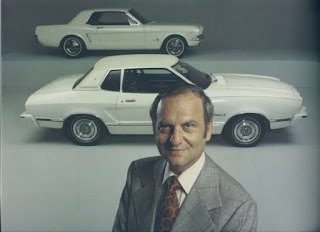The
movie ‘The
Smartest Guys in the Room’ is a comprehensive history and analysis of
the rise of Enron and its dramatic and catastrophic collapse. It starts when Ken
Lay becomes CEO of Houston Natural Gas and concludes with the collapse of Enron.
Along the way it paints a fascinating and compelling picture not only of what
Enron did as a company, but also the personalities that ran it and the details
of where and how it went wrong.
The core of the Enron story is the people,
an array of brilliant, egotistical, and arrogant executives who create a
corporate culture that selects for raw intelligence and vicious competition and
discards most of the social virtues typical of a corporation. Both the
intelligence and the arrogance come through clearly. Whatever else those
involved in the Enron story were, they were smart. The company was filled with
people capable of solving advanced equations in their head, and brilliant
economists who came up with both revolutionary trading techniques and ways of
exploiting legal loopholes before anyone else. That it captures not only the
weaknesses but also the strengths of Enron and shows how much talent was let
loose in an environment with no effective controls.
I think that one of the obvious systemic causes of the Enron
scandal is the legal and regulatory structure. First, laws regulations allow
firms to provide consulting services to a company and then turn around and
provide the audited report about the financial results of these consulting
activities. This is an obvious conflict of interest that is built into the
legal structure.
Second, a private company like Enron currently hires and pays its
own auditors. This again is a conflict of interest built into the legal system
because the auditor has an incentive not to issue an unfavorable report on the
company that is paying him or her.
Third, most large companies like Enron are allowed to manage their
own employee pension funds. Again, this is a conflict of interest built into
our legal system because the company has an incentive to use these funds in
ways that advantage the company even when they may disadvantage employees.
And fourth, most companies like Enron have codes of ethics that
prohibit managers and executives from being involved in another business entity
that does business with their own company. But these codes of ethics are
voluntary and can be set aside by the board of directors. The managers and executives,
of course, have a fiduciary duty to act in the best interest of the company and
its shareholders, But the law leaves considerable discretion to managers and
executives to exercise their own business judgment about what is in the best
interests of the company.
Add to
this, in an individualistic point of view, managers at Enron grew arrogant,
thinking themselves as invincible. Due to its leaders, there was a tendency for
the company to seal itself off from forces on the outside. Or perhaps it was
the corporate culture in which they operated that led to the problem. They had
rank-and-yank performance appraisal system, which eliminated anyone who fell
behind, survival of the fittest as they say.
It
was painful to watch the outcome of this scandal. However, I am more pleased
that I had the opportunity to watch this movie as this shows an accurate
picture of what us, the future leaders would have to deal with in the near
future.









